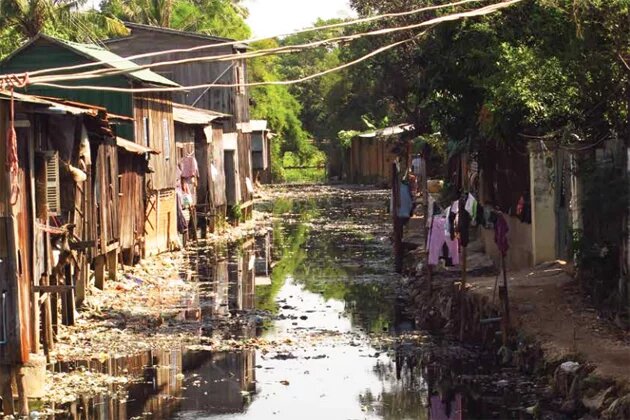
Tenure security, or more specifically lack thereof, is a pervasive problem in Cambodia. While rural households are driven from their land in the thousands to make way for Economic Land Concessions and other types of developments, urban residents, particularly the poor, continue to live with insecure tenure. Over 150,000 people in Phnom Penh – representing 11% of the capital’s current population – have been displaced over the past two decades.
The Circular on Resolution of Temporary Settlement on Land Which Has Been Illegally Occupied in the Capital, Municipal, and Urban Areas (C03) was developed following a series of violent forced evictions that shook Phnom Penh in 2009. Initially foreseen as a tool to standardize the treatment of evictees, it has since first conception taken on a wider role defining measures ranging from identification of so-called illegal settlements, to provision of on-site upgrading and resettlement combined with basic service provision. Many see the Circular as an opportunity – perhaps the only opportunity – for households located on state public land to be rendered legal.
Identification of settlements on state public land is a politically complicated exercise in Cambodia. Despite the efforts of donor-supported projects in the country’s land sector there has been very little progress in state land management, to the effect that no publicly accessible database on state land exists. Simultaneously, land registration, for the last decade conducted as systematic land registration (SLR), but more recently as part of the Prime Minister’s Directive 01, has focused mainly on rural areas, leaving much of Phnom Penh untitled. As such, the status of the land in many urban poor settlements remains unknown.
Even before its adoption, the Circular saw strong buy-in from Germany, a central donor to the Cambodian land sector, who made implementation of the Circular a key part of its continued commitment to support the sector. Following its adoption in May 2010, the Circular has been used in a German development agency Deutsche Gesellschaft für Internationale Zusammenarbeit (GIZ)-supported multi-stakeholder process to formalise communities in Battambang. While stakeholders report general satisfaction in the process, crucially none of the nine target communities have so far had their tenure secured, and the process has yet to be completed.
In contrast, the Municipality of Phnom Penh (MPP) appears to have largely implemented the Circular unilaterally with little oversight by donors, civil society or communities. According to the MPP website, identification and data collection of all ‘temporary settlements’ has been completed in all nine Khans (districts) of the city, while data collection on individual households has been completed in three Khans, and partially completed in one Khan. The impacts of C03 implementation in Phnom Penh are however yet to be determined. While in Battambang C03 implementation has led to a de facto city-wide moratorium on evictions, evictions continue in Phnom Penh at a steady pace and there appears to be little political will to deal with poor settlements in a transparent, multi-stakeholder fashion following the existing legal framework. Nevertheless, several donors have expressed interest in becoming involved in further C03 implementation in the city.
This report was conceived to provide stakeholders in urban development in Phnom Penh a better understanding of the extent to which Circular 03 meets the required legal standards to genuinely protect the rights of the urban poor through increasing their tenure security, and how practicable a tool it is for that purpose. It was written against the backdrop of donor funds potentially being directed to C03 implementation in Phnom Penh, with the of aim of providing an insight to both donors and other stakeholders in the process about how the Circular has been implemented so far, and what risks and opportunities this presents for the future.
For full reading of this article, Please download the PDF file below: